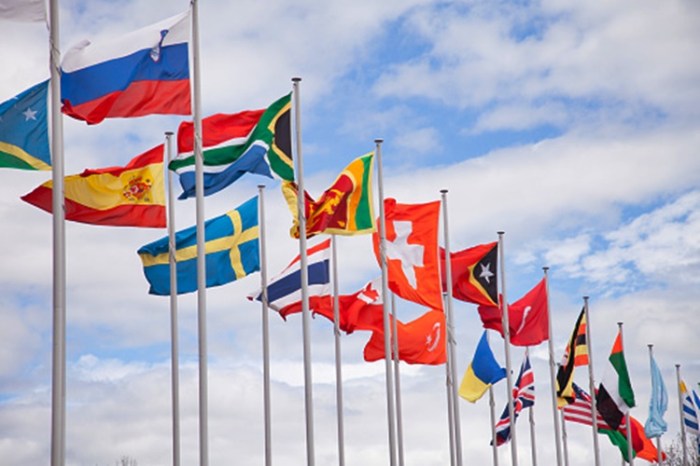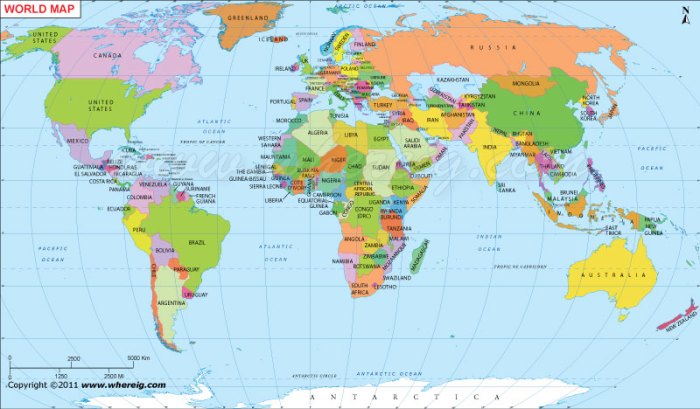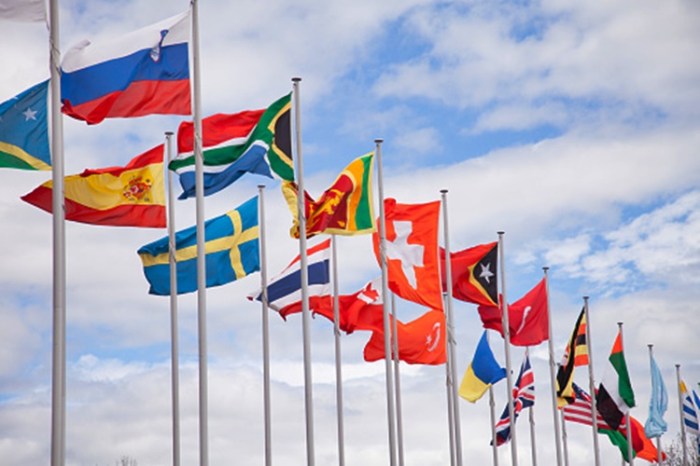How to live like a local in Chiang Mai? This guide dives deep into the vibrant culture, practical tips, and essential knowledge to immerse yourself in the authentic Chiang Mai experience. From finding affordable housing to navigating local transportation, we’ll explore the nuances of blending into the community and truly experiencing this captivating city.
This exploration will cover everything from the city’s history and character to practical aspects like food, transportation, and social interaction. You’ll learn how to navigate the city like a local, discover hidden gems, and experience the warmth and hospitality of the Chiang Mai community.
Introduction to Chiang Mai
Chiang Mai, nestled in the northern heart of Thailand, is a city that captivates visitors with its unique blend of ancient traditions and modern amenities. More than just a tourist destination, Chiang Mai offers a deep dive into Thai culture and history, beckoning those seeking an authentic experience beyond the typical tourist trail. The city’s charm lies in its preserved historical architecture, vibrant markets, and welcoming atmosphere, fostering a sense of community that resonates with both seasoned travelers and those embarking on their first adventure.Chiang Mai’s allure stems from its rich tapestry of history, dating back centuries.
The city’s significance extends beyond its physical structures; it embodies a legacy of cultural preservation and artistic expression. This rich history, coupled with its current status as a popular tourist destination, has created a unique dynamic that visitors should understand. A crucial aspect of understanding Chiang Mai is anticipating the expectations and preconceptions that often accompany the pursuit of a local experience.
Chiang Mai’s Unique Characteristics
Chiang Mai stands apart from other Thai cities through its historical significance and cultural preservation. Its well-preserved temples, ancient city walls, and bustling markets provide a glimpse into the region’s heritage. The city’s laid-back atmosphere, compared to the frenetic pace of Bangkok, contributes to its appeal. This slower pace of life encourages visitors to immerse themselves in the local culture and traditions.
Historical Context and Cultural Significance
Chiang Mai’s history dates back to the 13th century, making it one of Thailand’s oldest cities. The city served as a vital trading center and a cultural hub, accumulating numerous historical sites and temples that echo its past. Its cultural significance extends to its cuisine, art forms, and traditional ceremonies, which continue to flourish. The preservation of this heritage is evident in the numerous cultural centers and museums that provide insights into the region’s rich history.
Chiang Mai’s Current Reputation as a Tourist Destination
Chiang Mai’s reputation as a popular tourist destination is undeniable. Its picturesque landscapes, affordable prices, and variety of activities draw visitors from around the world. This influx of tourists has, however, brought both benefits and challenges. The city’s current image reflects a delicate balance between preserving its local character and accommodating the needs of the growing tourism sector.
The challenges are acknowledged and addressed by local communities.
Common Expectations and Preconceptions of Living Like a Local
Visitors often desire to experience life beyond the typical tourist hotspots. Living like a local in Chiang Mai involves understanding the local customs, language, and daily routines. The expectation is not to fully replicate a local’s lifestyle but to engage with it respectfully and authentically. This means avoiding tourist traps and engaging with local markets, attending local events, and learning basic Thai phrases.
Visitors should also anticipate a different pace of life, often slower and more relaxed than what they might be accustomed to.
Key Elements of Chiang Mai’s Charm
| Aspect | Description |
|---|---|
| Historical Architecture | Chiang Mai boasts numerous temples, palaces, and historical buildings, providing a glimpse into the city’s rich past. |
| Vibrant Markets | From the bustling night markets to local produce stalls, the markets are a hub for local life and offer unique shopping experiences. |
| Friendly Atmosphere | Chiang Mai is known for its welcoming and relaxed atmosphere, fostering a sense of community that attracts visitors. |
| Delicious Cuisine | From street food to traditional restaurants, Chiang Mai offers a wide variety of delicious and affordable food options, reflecting the region’s culinary traditions. |
| Natural Beauty | The surrounding countryside offers opportunities for trekking, exploring natural landscapes, and connecting with nature. |
Accommodation and Living Spaces
Finding the right accommodation in Chiang Mai is key to experiencing the local vibe. Beyond the tourist hotspots, a wealth of options caters to various budgets and lifestyles. Understanding the nuances between a hotel, guesthouse, or rental apartment can make a big difference in your immersion into the local scene.This section dives into the different accommodation choices, highlighting their pros and cons, and comparing expat and local living spaces.
This allows you to make an informed decision about where to stay and how to best integrate with the community.
Accommodation Options
Different accommodation options cater to diverse needs and preferences. The choice between a hotel, guesthouse, or renting an apartment depends on your budget, desired level of comfort, and how much interaction with locals you seek.
- Hotels offer a familiar experience with standardized amenities. They often cater to tourists and international visitors. While they might provide convenience, they often limit your interaction with the local community.
- Guesthouses, a more common choice for budget travelers, provide a more intimate and often personalized experience. They are typically run by locals and can offer insights into the local culture. However, amenities might be less extensive compared to hotels.
- Renting an apartment is ideal for those seeking a longer-term stay. It offers more space and freedom compared to guesthouses or hotels. This option often provides more opportunities to interact with locals through neighbors and local shops.
Comparing Accommodation Choices
A comparative analysis of accommodation choices helps in making informed decisions. The following table summarizes the pros and cons of each option.
| Option | Pros | Cons |
|---|---|---|
| Hotel | Familiar amenities, standardized services, often convenient locations. | Potentially higher cost, less interaction with local community, less space, potentially less local experience. |
| Guesthouse | More affordable than hotels, often run by locals, can offer a more personalized experience, better local integration potential. | Amenities might be less extensive than hotels, potentially less space, limited services compared to hotels. |
| Apartment Rental | More space, greater freedom, more privacy, often better integration into the local community, often more affordable in the long run than hotels, potentially lower costs than other accommodation options. | Requires more effort in finding, managing, and maintaining the property. Potentially higher upfront costs, more responsibility for maintenance. |
Local vs. Expat Living Spaces
Local living spaces in Chiang Mai often feature smaller apartments or houses, optimized for practicality and often prioritizing functionality over extensive amenities. Expats, on the other hand, often seek larger accommodations, reflecting a different lifestyle and often a different level of comfort. Expat communities tend to cluster in specific areas, fostering a sense of community among themselves. This is not always the case with locals, whose community networks are often interwoven throughout the city.
Transportation and Navigation
Chiang Mai’s charm lies not just in its temples and markets, but also in its surprisingly efficient, yet relaxed, transportation system. Navigating the city as a local involves understanding the rhythm of the streets and the various modes of transport available, from the ubiquitous songthaews to the personal freedom of a motorbike. This section explores the key methods of getting around and provides insights into their respective strengths and weaknesses.Understanding the local transportation landscape is key to experiencing Chiang Mai authentically.
Locals often utilize a mix of methods, balancing cost-effectiveness with speed and convenience. This blend of options caters to diverse needs and budgets, making Chiang Mai a truly accessible city for both tourists and residents.
Common Transportation Methods
Chiang Mai’s transportation network is a fascinating blend of traditional and modern approaches. The most prevalent methods include songthaews, taxis, motorbikes, and public transport. Each offers unique advantages and disadvantages, influencing the choice of locals.
Songthaews: The Iconic Chiang Mai Taxi
Songthaews are the heart of Chiang Mai’s public transport. These open-air, shared taxis, usually with multiple stops, are a cost-effective and efficient way to travel between districts. They provide a unique insight into local life, as passengers from all walks of life mingle on board. Their efficiency comes from their frequent routes, and their cost-effectiveness makes them a favorite among locals.
Taxis: Convenience and Comfort
Taxis offer a more private and comfortable ride compared to songthaews. They are particularly useful for longer distances or when speed is a priority. However, the cost can be higher than songthaews, making them a less frequent choice for shorter journeys. The availability of taxis in Chiang Mai is generally good, though the experience can sometimes vary depending on the driver and the time of day.
Motorbikes: Freedom and Flexibility
Motorbikes are incredibly popular in Chiang Mai, offering unparalleled freedom and flexibility for locals. The city’s relatively flat terrain and well-maintained roads make them ideal for navigating the maze of streets. However, the convenience comes with certain responsibilities, like managing traffic and parking. Owning a motorbike also involves costs for insurance, fuel, and maintenance. The ability to navigate narrow alleyways and bypass traffic congestion is a significant advantage for locals who utilize this method.
Public Transport: Expanding Options
Beyond songthaews, Chiang Mai has a growing network of public transport options. These include buses and, in certain areas, electric vehicle taxis. They offer a viable alternative for those who want to avoid the cost and potential hassle of owning a motorbike. The reliability and frequency of these services are still developing, but they provide an environmentally conscious option.
They are also accessible to people with disabilities, and can reach destinations that other forms of transport may not reach.
Navigating the City Like a Local
Chiang Mai’s layout can feel overwhelming at first. Familiarizing yourself with the city’s landmarks, using local maps, and leveraging mobile apps will prove essential. Local maps often highlight key landmarks and local businesses, and local apps can guide you through the city’s complex streets.
Want to truly experience Chiang Mai like a local? Beyond the obvious elephant encounters, delve into the vibrant local markets, try some authentic Northern Thai cuisine, and soak in the city’s laid-back atmosphere. For a taste of a different kind of local experience, consider exploring some of the top things to do in Toledo, Ohio, like visiting the Toledo Museum of Art or strolling through the historic streets.
Then, return to Chiang Mai and embrace the friendly smiles and welcoming spirit of the locals. You’ll quickly discover the unique charm of the city and how to fully immerse yourself in its local culture. top things to do in toledo ohio
Comparison Table of Transportation Options
| Method | Cost | Speed | Accessibility |
|---|---|---|---|
| Songthaews | Low | Moderate | High, frequent routes |
| Taxis | Medium | High | Moderate, availability varies |
| Motorbikes | Moderate (fuel, maintenance) | High | High, especially for navigating narrow streets |
| Public Transport | Low | Moderate | Moderate, expanding options |
Food and Dining Experiences
Chiang Mai’s culinary scene is a vibrant tapestry woven with threads of tradition and innovation. From bustling night markets to intimate family-run restaurants, the city offers a diverse range of dining experiences catering to every palate and budget. The food reflects the region’s rich history, incorporating ingredients and techniques passed down through generations. This exploration delves into the heart of Chiang Mai’s food culture, highlighting the best ways to savor authentic flavors.The cuisine of Chiang Mai is a delightful blend of northern Thai flavors and influences from neighboring regions.
A key aspect of the local dishes is the use of fresh, locally sourced ingredients, combined with a variety of spices and herbs that create complex and delicious profiles.
Local Favorites
Traditional northern Thai dishes, like Khao Soi, are deeply rooted in the region’s history. These dishes often feature unique ingredients and cooking methods. The region’s rice cultivation plays a vital role in the local diet, leading to dishes featuring rice in various forms, from fragrant jasmine rice to sticky rice.
Key Ingredients and Cooking Methods
Northern Thai cuisine heavily utilizes ingredients like galangal, lemongrass, chilies, and various herbs. Cooking methods often involve stir-frying, grilling, or simmering, bringing out the best in the fresh, local produce. The delicate balance of flavors in the dishes is often achieved through the skillful use of spices and sauces.
Local vs. Tourist Restaurants
Local restaurants often offer a more authentic experience, with dishes prepared using traditional methods and locally sourced ingredients. Tourist-oriented restaurants, while convenient, sometimes compromise on authenticity for wider appeal and familiarity. The prices are often a good indicator of the experience: tourist traps might have higher prices for the same dish compared to local eateries.
Best Places for Authentic Cuisine
For an immersive experience, explore the local night markets. These vibrant marketplaces offer a variety of affordable and authentic dishes, alongside live music and vibrant atmosphere. Many smaller restaurants in the Old City offer authentic dishes and a chance to interact with the local community.
Affordable and Delicious Food, How to live like a local in chiang mai
Chiang Mai offers plenty of options for affordable and delicious food. Night markets are a prime example of where you can find an incredible variety of food for very reasonable prices. Smaller, local restaurants are often just as delicious, if not more, than their more tourist-oriented counterparts. Always be willing to ask questions about the dishes and seek recommendations from locals.
List of Local Eateries
| Eatery | Specialty |
|---|---|
| Khao Soi Khantoke | Famous for their authentic Khao Soi |
| Mama’s Kitchen | Traditional northern Thai curries and stir-fries |
| The Local Spot | Authentic northern Thai dishes in a casual setting |
| Baan Thip | Excellent northern Thai dishes in a family-run restaurant |
Social Interaction and Community
Chiang Mai’s vibrant culture thrives on strong community bonds. Engaging with locals is key to truly experiencing the city. Beyond the sights and sounds, connecting with the people who call Chiang Mai home offers a deeper understanding of the region’s unique character. This chapter explores how to build those connections, participate in local activities, and respect the cultural norms.Building relationships in a new environment requires proactive effort.
This isn’t about forcing friendships but rather about showing genuine interest and respect for the local community. This approach fosters trust and allows for meaningful interactions that enrich your experience.
Importance of Establishing Connections
Strong social connections are crucial for a more enriching experience in Chiang Mai. Locals often welcome visitors who show genuine interest in their culture and way of life. These connections can open doors to insider tips, hidden gems, and a deeper understanding of the region’s history and traditions.
Strategies for Building Relationships
Engaging with neighbours and community members involves showing respect and interest. Simple gestures like a friendly greeting or a polite conversation can go a long way. Offer assistance if needed, such as carrying groceries or helping with directions. Learning a few basic Thai phrases demonstrates respect and can foster rapport. Attending local events and activities is another excellent opportunity to interact and meet people.
Common Local Social Gatherings and Activities
Chiang Mai boasts numerous social gatherings. Local markets, particularly the night markets, offer opportunities for interaction. Temple visits and festivals provide spaces for cultural exchange. Social gatherings, often centred around food and conversation, are a common way for locals to connect. These gatherings offer a glimpse into daily life and traditions.
Local Culture and Social Norms
Understanding local customs is essential for avoiding misunderstandings. Respect for elders is deeply ingrained in Thai culture. Modesty and appropriate dress, especially when visiting temples, are crucial. Direct confrontation is generally avoided; indirect communication is preferred. Patience and understanding are vital in navigating social situations.
Participating in Local Events and Celebrations
Chiang Mai hosts numerous festivals and celebrations throughout the year. These events offer a unique opportunity to immerse yourself in the local culture and meet people. Consider participating in cultural activities, like traditional dances or music performances. Research local events and participate in activities that align with your interests.
Local Community Activities and Social Customs
Understanding the social customs of the local community will allow for a smooth integration. Chiang Mai’s vibrant social scene is deeply intertwined with its cultural heritage. Traditional Thai hospitality and the emphasis on family and community values are fundamental aspects of daily life. This includes respecting elders, engaging in polite conversations, and avoiding loud or disruptive behaviour.
Language and Communication
Learning a few basic Thai phrases can significantly enhance your experience in Chiang Mai. It demonstrates respect for the local culture and opens doors to more authentic interactions. While English is spoken in tourist areas, knowing some Thai will allow you to connect with locals on a deeper level and explore beyond the well-trodden paths. This section will equip you with the essential phrases and strategies to navigate daily life and build meaningful connections.
Basic Thai Language Overview
Thai, a tonal language, uses a unique script. While mastering the script is a significant undertaking, knowing the pronunciation of basic words and phrases is crucial. Understanding the tonal aspects of the language is essential for accurate communication. Different tones can alter the meaning of a word.
Essential Phrases for Everyday Interactions
Learning a few essential phrases will make your daily interactions much smoother. These phrases are practical and frequently used in various situations.
- Greetings: “Sawasdee” (hello) and “Khop khun” (thank you) are vital for initiating conversations and expressing gratitude. “Sawasdee krap” (for men) and “Sawasdee ka” (for women) are more formal ways of greeting. “Lae” (goodbye) is a simple way to end a conversation.
- Numbers: Knowing numbers from one to ten, along with basic counting, will prove helpful for ordering food, haggling at markets, and understanding prices. The Thai numerical system is different from English.
- Food Ordering: “Khao Pad” (fried rice), “Khao Soi” (Northern Thai curry noodle soup), and “Tom Yum” (spicy soup) are common dishes. Learning how to ask for “mai pet” (no spicy) or “pet” (spicy) will be helpful for customizing your meals.
- Directions: “Roi” (right), “Wa” (left), and “Haeng” (straight) are fundamental directional words. Knowing how to ask for directions is essential for navigating the city.
- Asking for Help: “Khun” (sir/madam) and “Chum” (excuse me) are polite ways to address people and request assistance.
Improving Language Skills
Immersion is key to improving your language skills. Taking Thai language classes is a great way to learn grammar, pronunciation, and vocabulary. Practicing with locals, either through conversation exchange groups or by striking up conversations with shopkeepers, can significantly accelerate your progress. Using language learning apps like Duolingo or Memrise can supplement your learning.
Immersing yourself in Chiang Mai’s local culture is key to experiencing the city like a true resident. Forget the tourist traps and instead, embrace the vibrant markets, sample the delicious street food, and discover hidden temples. Just like the quirky residents of the Addams Family Mansion in Brooklyn, you’ll find a unique charm in the city’s local vibe.
This quirky house in Brooklyn reminds us that sometimes the most interesting places are found in the unexpected. Ultimately, embracing the local customs and interacting with the friendly people will make your Chiang Mai adventure truly unforgettable.
Respecting Local Customs and Traditions
Showing respect for local customs and traditions is crucial for a positive experience. Removing your shoes before entering homes and temples is a common practice. Adjusting your clothing when visiting religious sites is also a sign of respect. Learning about Thai etiquette can help you avoid any unintentional cultural faux pas.
Using Translation Apps and Services
Translation apps and services can be invaluable tools for understanding menus, signs, and conversations. However, remember that these tools are not always perfect. Supplement them with your growing knowledge of Thai phrases to avoid miscommunication. For example, Google Translate can be helpful, but understanding the nuances of Thai is essential for accurate interpretation.
Common Phrases and Their Translations
| Thai Phrase | English Translation |
|---|---|
| Sawasdee | Hello |
| Khop khun | Thank you |
| Mai pen rai | You’re welcome/It’s okay |
| Khao Pad | Fried Rice |
| Tom Yum | Spicy Soup |
“Learning a few basic phrases goes a long way in showing respect and fostering connections with the local community.”
Exploring Local Markets and Activities

Chiang Mai’s vibrant markets and cultural activities are a significant part of the local experience. Beyond the tourist-centric offerings, delving into the local markets reveals authentic products, traditions, and a deeper understanding of the city’s soul. These encounters offer unique opportunities to interact with the community, purchase souvenirs, and gain a richer perspective on the region’s history and artistry.Immerse yourself in the tapestry of local life by exploring the diverse offerings of Chiang Mai’s markets.
From the bustling Warorot Market to the more intimate charm of the local night markets, each provides a distinct flavour of the city. Understanding the nuances of haggling and respecting local customs will enhance your interactions and ensure a rewarding experience.
Best Local Markets to Explore
Chiang Mai boasts a plethora of markets, each with its unique character. Warorot Market, a sprawling complex, offers a wide array of fresh produce, local crafts, and everyday goods. For a more intimate experience, visit the charming local night markets, like the Nimmanhaemin Road night bazaar, known for its trendy atmosphere and artisanal goods. Each market provides a different shopping experience, and understanding their distinct characteristics will make your exploration more enriching.
Shopping Experiences and Haggling Strategies
The shopping experience in Chiang Mai’s markets is often a dynamic interplay of bargaining and negotiation. Expect to haggle on prices, particularly for souvenirs and crafts. Starting with a lower offer, showing genuine interest, and acknowledging the seller’s effort will enhance the interaction and lead to mutually agreeable terms. Be polite and respectful throughout the process. Understanding the local customs and respecting the seller’s time will contribute to a positive experience for all parties involved.
Local Cultural Activities and Traditions
Chiang Mai is steeped in rich cultural traditions. Attend a traditional Thai dance performance, a Lanna cultural show, or explore local temples. These experiences provide insights into the city’s history and artistic heritage. Participating in a cooking class or a Thai massage session offers a hands-on engagement with local customs. Attend local festivals, such as the Loy Krathong celebrations, to witness vibrant cultural expressions.
So, you’re dreaming of immersing yourself in Chiang Mai’s vibrant culture? To truly live like a local, consider how the current volatile USD exchange rate might affect your trip. Check out this helpful guide on volatile weakening usd how travelers can plan trip smartly to ensure you’re making the most of your budget. Then, embrace the local markets, try the street food, and learn a few basic Thai phrases.
You’ll be living like a local in no time!
Participating in Local Events and Festivities
Chiang Mai’s calendar is punctuated by vibrant local events and festivals. These festivities are a spectacular display of Thai culture, often featuring music, dance, food, and traditional ceremonies. Keep an eye on local calendars or inquire at tourist information centres for details on upcoming events. Immerse yourself in the local atmosphere and participate in the festivities to fully appreciate the vibrant cultural scene.
Local Arts and Crafts Scene
Chiang Mai’s artisans produce a wide array of exquisite crafts, from silk textiles to intricate wood carvings. Visiting workshops and studios allows for direct interaction with the artists, fostering a deeper appreciation for their craft and supporting the local economy. Understanding the history and techniques behind these crafts enhances the value of the purchase and fosters a connection with the local community.
History, Purpose, and Ambiance of the Markets
Chiang Mai’s markets, from the bustling Warorot to the more intimate night markets, each reflect a distinct purpose and historical context. Warorot, a central hub, provides a rich mix of fresh produce, daily necessities, and local crafts, serving the local community. Night markets often offer a lively social scene, blending shopping with entertainment and food stalls. The ambiance varies, from the vibrant energy of the Warorot to the relaxed atmosphere of the night markets, each adding to the city’s unique charm.
Healthcare and Practical Considerations
Chiang Mai offers a blend of modern and traditional healthcare, catering to various needs. Understanding the local options, costs, and necessary procedures is crucial for a smooth and safe experience. This section details essential aspects of healthcare, practical considerations, and financial management during your stay.Local healthcare options are diverse, ranging from well-equipped hospitals to smaller clinics and traditional healers.
Knowing your options and understanding their strengths and limitations will allow you to make informed decisions in case of an emergency or routine health needs.
Local Healthcare Options and Facilities
Chiang Mai boasts several reputable hospitals, including the renowned Chiang Mai Provincial Hospital, offering a wide spectrum of medical services. Private hospitals, like the prestigious Phyathai Chiang Mai Hospital, provide more specialized care and advanced technologies. Numerous clinics cater to more basic needs and are often more affordable. Local knowledge of which facilities best suit specific needs is beneficial.
Many smaller clinics often specialize in particular treatments, such as acupuncture or traditional Thai medicine.
Availability and Affordability of Medical Services
Medical services in Chiang Mai vary in price depending on the facility and the complexity of the treatment. Generally, consultations and basic treatments at clinics are more affordable than those at larger hospitals. Emergency services are readily available at hospitals, though costs can be higher. Be prepared for potential expenses and consider travel insurance to cover unexpected medical costs.
Pharmacies are widely available, stocked with both common medications and more specialized products.
Obtaining Necessary Documents and Visas
Ensure all necessary documents, including passports, visas, and any required medical certificates, are in order before arrival. Check visa requirements and regulations on the Royal Thai Embassy website. Failure to comply with immigration regulations can lead to significant issues, including potential detention or deportation. Understanding the specific requirements for your stay is crucial for a seamless experience.
Staying Safe and Healthy in Chiang Mai
Practicing basic hygiene, such as handwashing and food safety, is important in any new environment. Be mindful of potential health risks associated with street food and ensure you source food from reputable vendors. Mosquito repellent and sun protection are essential, especially during the hotter months. Consult your doctor about necessary vaccinations and health precautions before your trip.
Local Banking and Financial Systems
Thai baht is the local currency. Most businesses accept credit cards, but cash is still widely used, particularly in smaller establishments. ATMs are conveniently located throughout the city. Understand the exchange rates and fees associated with currency conversions. Familiarize yourself with local banking practices to ensure smooth financial transactions.
Essential Resources for Handling Emergencies
Keep contact information for your embassy, travel insurance company, and local hospitals readily available. Learn basic Thai phrases related to emergencies. This knowledge can be invaluable in case of an unexpected event. Consider purchasing a local SIM card for easy communication in case of emergencies. Familiarise yourself with local emergency services numbers, and where they are located.
End of Discussion: How To Live Like A Local In Chiang Mai
Embarking on a journey to experience Chiang Mai like a local involves more than just sightseeing. It’s about understanding the city’s unique culture, navigating its vibrant streets, and connecting with the local community. This guide provides a roadmap to truly immerse yourself in the spirit of Chiang Mai, from affordable accommodations to delicious local cuisine, and ultimately, building meaningful connections.




